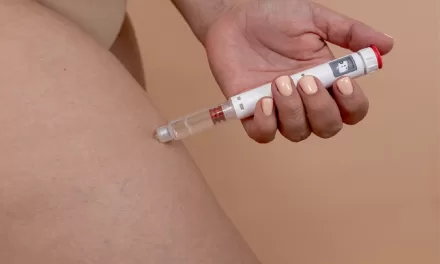A recent HealthDay/Harris Poll has shed light on the factors influencing Americans’ vaccination decisions, revealing that local outbreaks of preventable diseases like measles, COVID-19, and influenza significantly motivate individuals to seek immunization. This comes at a time when the U.S. has seen a surge in such illnesses, with measles outbreaks affecting 19 states.
The poll found that 67% of respondents indicated that local outbreaks and new variants of vaccine-preventable diseases influence their decision to get vaccinated. However, experts like Dr. Peter Jay Hotez, co-director of the Texas Children’s Hospital Center for Vaccine Development, caution against relying solely on outbreaks to drive vaccination rates. “You don’t want to wait for an epidemic to convince people of this,” Hotez stated, highlighting the recent measles death in Texas. He also pointed out that even during outbreaks a significant portion of the population remains hesitant.
The poll also emphasized the crucial role of healthcare providers in vaccine advocacy. A substantial 72% of respondents said their healthcare providers influence their vaccination decisions, with 89% seeking vaccine information from them. Additionally, 41% consider their provider their primary source of vaccine information. Hotez noted, “That’s the best possible outcome… if people could rely more on their health care provider. Probably one of our best hopes is a trusted messenger.”
Media coverage of outbreaks also plays a role, with 54% of respondents saying that reported increases in measles and whooping cough have made them more supportive of vaccination. In contrast, social media’s influence was deemed less significant, with only 33% citing online communities as a factor.
The poll revealed a mixed view of the federal government’s role in vaccine guidance. Only 38% consider agencies like the CDC or NIH their primary source of vaccine information, and 44% believe the government should be responsible for public health policy related to infectious diseases. Strikingly, 14% believe vaccine decisions should be left entirely to the individual.
Furthermore, the poll indicated that 44% of respondents have changed their stance on vaccines in the past five years, with those changes nearly evenly split between increased support (25%) and decreased support (19%). The COVID-19 pandemic and its vaccine rollout were cited as the primary reasons for these shifts.
“My last book, ‘The Deadly Rise of Antiscience,’ shows that 200,000 Americans needlessly died, including 40,000 in my state of Texas, because they refused COVID vaccines,” Hotez said, attributing the deaths to a “targeted, organized disinformation campaign.”
The poll was conducted online from February 28 to March 4 among 2,092 U.S. adults, with a margin of error of plus or minus 2.5 percentage points.
For more information on recommended vaccines, visit the U.S. Centers for Disease Control and Prevention.
Disclaimer: This news article is based on the provided poll results and expert opinions. Individual experiences and perspectives on vaccination may vary. The information presented should not be considered medical advice. Always consult with a qualified healthcare professional for personalized guidance regarding vaccinations.












